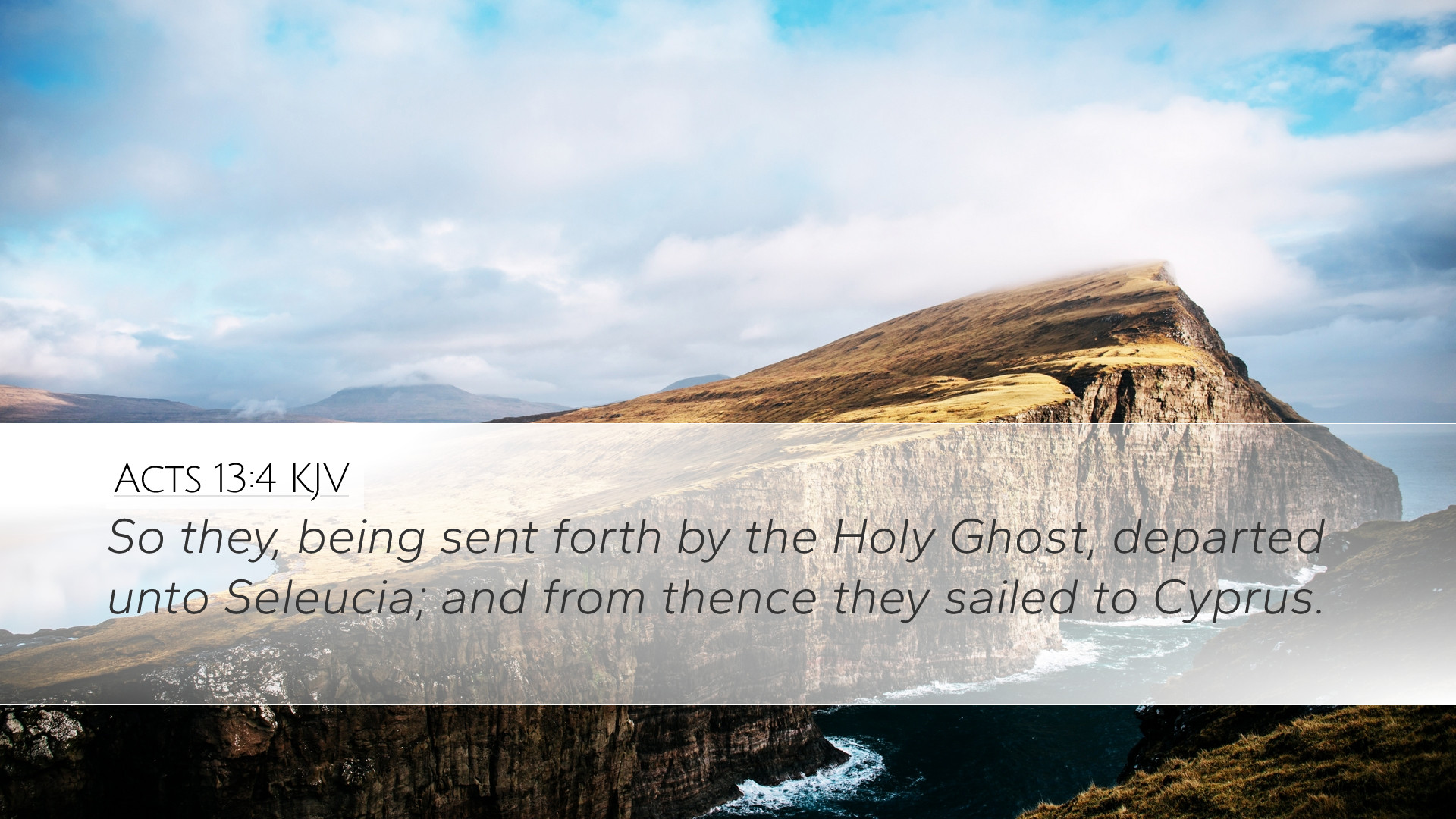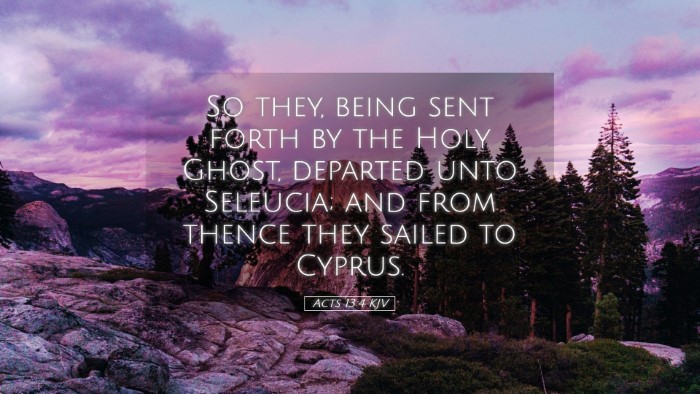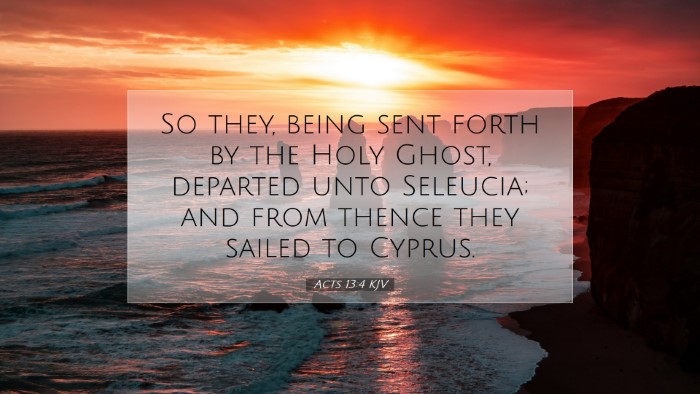Commentary on Acts 13:4
Introduction
Acts 13:4 states, "So, being sent out by the Holy Spirit, they went down to Seleucia, and from there they sailed to Cyprus." This pivotal verse marks the beginning of Paul's first missionary journey, showing how the Holy Spirit orchestrates the mission of the Church. This commentary will draw insights from public domain resources, including Matthew Henry, Albert Barnes, and Adam Clarke, providing reflections and applications relevant to pastors, students, theologians, and Bible scholars.
Contextual Background
This missionary journey occurs after the Church in Antioch had been established and was actively seeking to spread the Gospel. The church was diverse and spirit-filled, which is critical to understanding the events that unfold. The leadership in Antioch consisted of prophets and teachers who deeply sought God’s will (Acts 13:1).
The Role of the Holy Spirit
Divine Commission
Matthew Henry emphasizes that the act of sending out Barnabas and Saul was divinely initiated. Their calling was not merely a human endeavor but a manifestation of the Holy Spirit's direction. This significant detail highlights the necessity of the Spirit's guidance in ministry and mission work. It underscores that effective evangelism must be led by the Holy Spirit, who empowers believers and sets them apart for specific tasks.
Obedience to the Call
Albert Barnes elaborates on the obedience of the church leaders, signifying their willingness to submit to the Holy Spirit’s directive. The church’s response in sending Paul and Barnabas is a model of cooperative ministry where individuals recognize and affirm God's calling on others. This collaborative effort reflects the unity and purpose of the Church in advancing the Gospel.
The Journey Begins
Departure and Destination
Adam Clarke provides an insightful analysis of the geographical and spiritual journey from Antioch to Seleucia and then to Cyprus. The choice of Cyprus, Barnabas's homeland, symbolizes the strategic nature of the mission. It highlights the significance of cultural and relational connections in effective ministry. Clarke notes that understanding the context of the people being reached is crucial for successful evangelism.
Spiritual Significance of Cyprus
Cyprus was known for its population of both Jews and Gentiles, representing a prime opportunity for the Gospel. As Paul and Barnabas embarked on this journey, it illustrated the breaking down of ethnic and social barriers, an essential theme throughout the Book of Acts. This is a reminder to the modern church about the scope of the Great Commission—to reach all nations and people.
The Lessons for the Church Today
Faithful Discipleship
From this verse, pastors and leaders can draw lessons on being led by the Spirit in their ministries. It prompts a reflection on whether they are seeking divine guidance in their decisions. Matthew Henry’s commentary emphasizes the importance of prayer and fasting in identifying and sending out workers. This focus on spiritual disciplines speaks to the need for a dedicated prayer life for church leaders and congregations alike, as they pursue God’s vision for their community.
Collaboration in Ministry
Moreover, the collaboration seen between Paul and Barnabas emphasizes the value of working together in ministry. As highlighted by Albert Barnes, the early church’s collective effort serves as an encouragement for modern churches to cultivate unity and shared mission. This collaboration can help to foster a strong community of believers who support one another in fulfilling God’s call.
Conclusion
Acts 13:4 is rich with implications for both the church's historical context and contemporary ministry practice. By examining the role of the Holy Spirit in initiating missions, the importance of obedience to God’s call, and the significance of cultural context in evangelism, we understand better the dynamics of early church missions. In navigating the complexities of ministry today, may pastors, students, theologians, and scholars draw inspiration from these insights, ensuring that the mission remains Spirit-led and community-focused.


